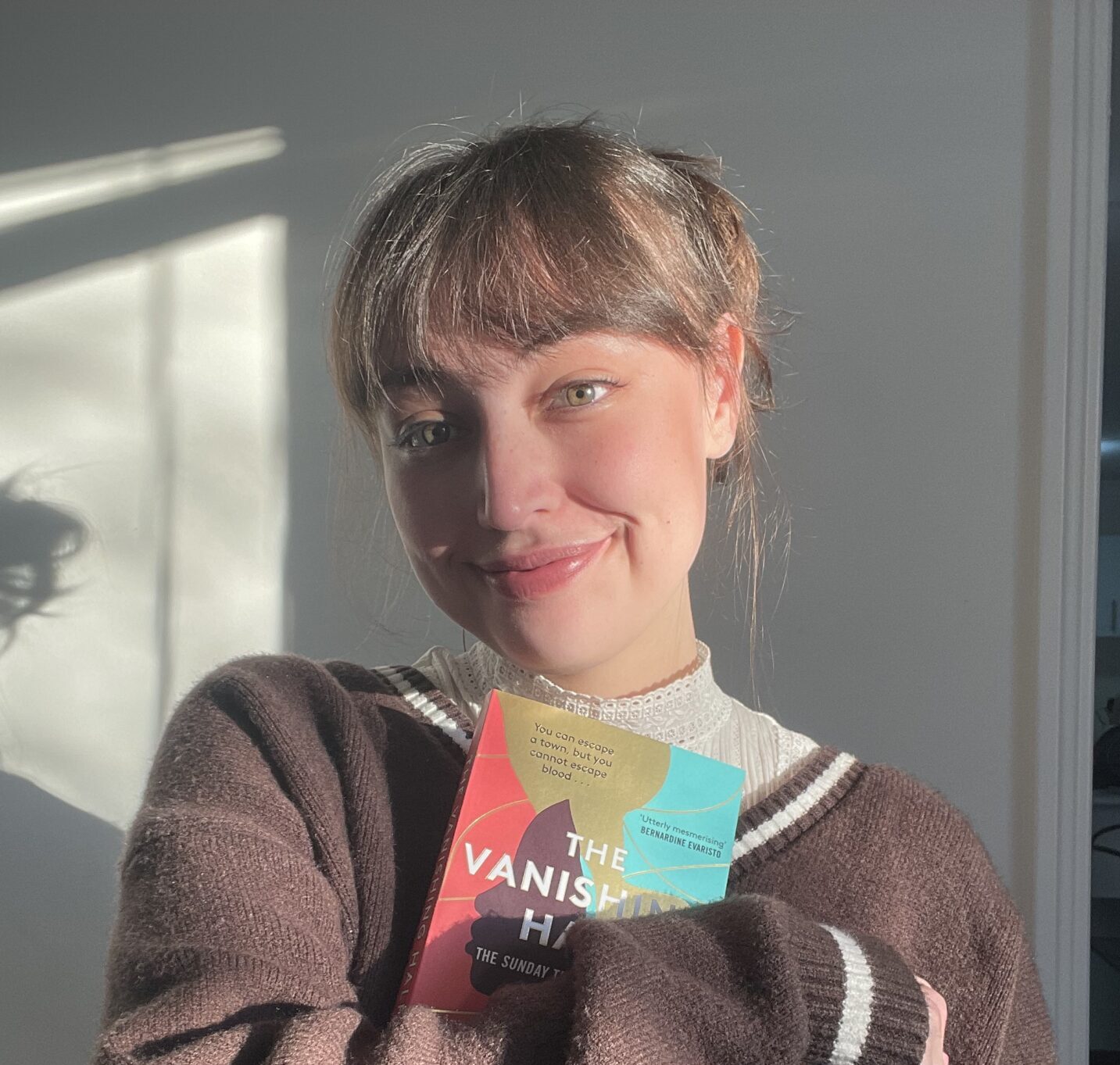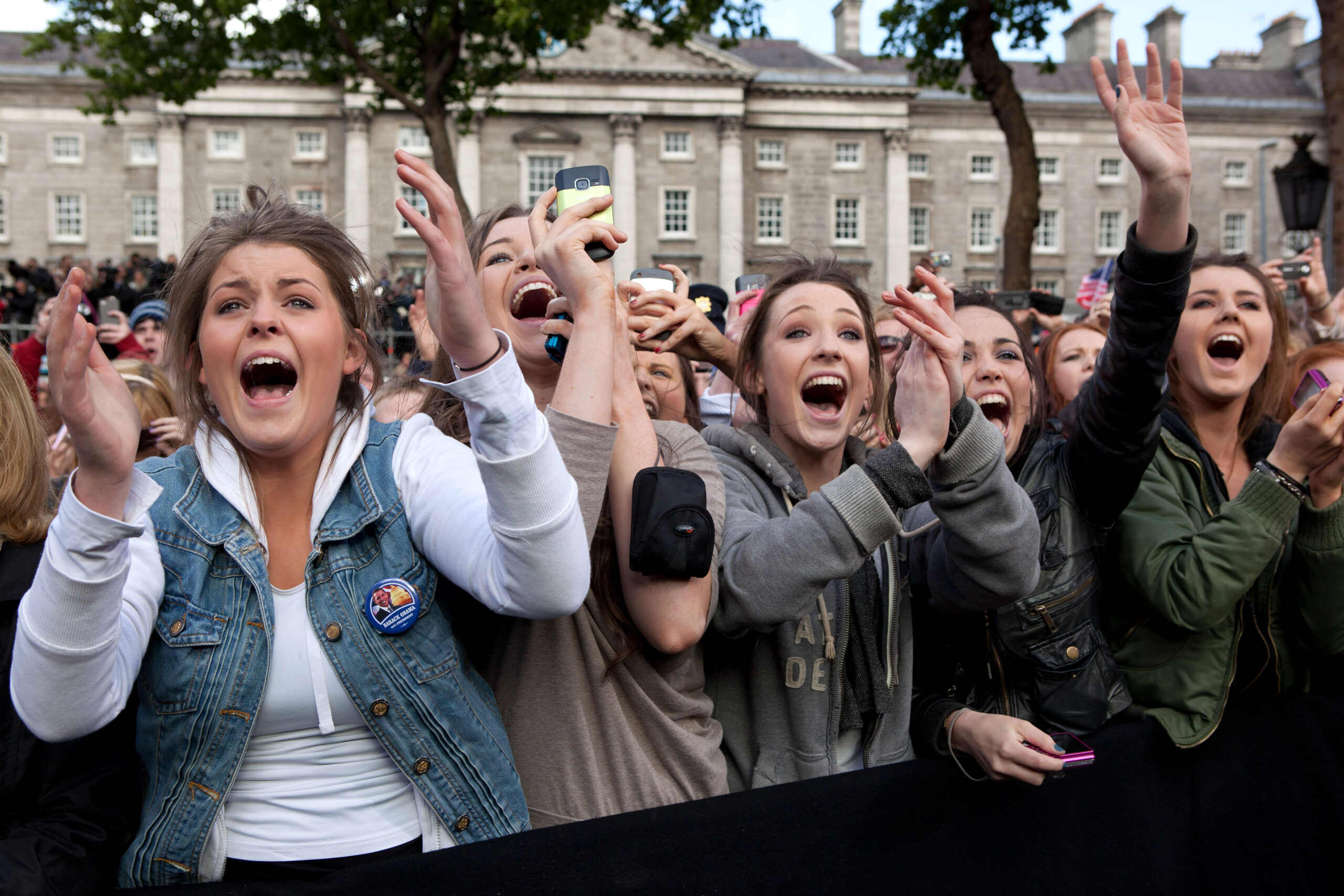In 2023, eating alone is a thing of the past. Even if you’re in an empty room, you can always be accompanied by a familiar face as you chow down. Whether it’s YouTube videos, TikToks or new episodes of your Netflix favourite, there are endless hours of content – and celebrities – to keep you company.
These dinnertimes spent with people we don’t know are symptomatic of a celebrity-centric culture where the famous people on our screens become substitutes for company in our real lives. But why does this happen?
How do celebrities and influencers weave their way into our daily routine and thoughts?
FILLING A GAP
“Well, celebrities come into our lives when we need them,” says Janey Umback.
Janey is a PhD candidate at Curtin University. The subject of her studies? Jungkook and Harry Styles – two global superstars and former members of iconic boybands BTS and One Direction.
According to a recent meta-analysis, celebrities can be the answer to our “emotional, cognitive, social, and other sociopsychological needs”.
Whether it’s a missing dinner companion or a desire for a new role model and community, public figures can be the answer.
When we’re children, our role models are our families, teachers or coaches – adults we know. But as we enter our teenage years, we begin looking for idols outside of our immediate circles. And often, we are not drawn to the celebrity themselves.
“It’s about what they represent,” says Janey.
@misslizzyxxx my true mother #fyoncé ♬ original sound – user51173594160
We might love a famous person because they live a lavish lifestyle that we want to emulate. We might respect their work ethic and success, or we might be drawn to a celebrity because of their perceived morality and goodness.
“It’s positive transference,” says Janey.
We obsess over celebrities who represent something we want to be, and in liking them, we feel that we possess those qualities as well. This can make our self-esteem soar, as though the act of being a fan somehow brings us closer to our ideal self.
FINDING COMMUNITY
Being part of a fandom also means finding a community where everyone has a common interest. It is an easy way to make friends and feel included, especially if you are feeling isolated in regular life.
A celebrity’s fanbase is “essentially a group of like-minded people”, says Janey.
“Being part of a fandom facilitates psychological development and an exploration of your own identity.”
In a community of people who share your values, you feel safe and free to explore your own interests and express who you truly are.
‘BTS taught me that I am worthy’: readers on why they love the K-pop superstars https://t.co/DQHr7qETF9
— Guardian culture (@guardianculture) December 14, 2021
FALLING IN LOVE ONLINE
You’re probably familiar with the term ‘para-social relationships’ and the negative connotations that come along with it.
The concept dates back to 1956 and basically refers to a one-sided relationship with the illusion of intimacy: you feel that you have a shared connection with your celebrity of choice, even though they don’t know you.
While para-social relationships are by no means new, they are definitely made more complex by the internet.
“[Today] fans have more context to work with,” Janey explains.
Thanks to the internet, celebrities can publicly share personal photos or thoughts seconds after they occur. Furthermore, we the audience (aka non-famous people) can instantaneously share content with celebrities as well.
Sometimes they might even notice and acknowledge a comment or message of ours.
@heyimreneedominique MY WEEK IS COMPLETE THANKS #911 ♬ original sound on IG – Reneé Dominique
Social media gives us a direct line to famous people that feels like an intimate two-way conversation. Now, more than ever, it feels like celebrities are people we really know.
But this illusion of intimacy means that we are prone to feeling angry or let down when our favourite public figure acts in a way that we don’t like.
Of course, this doesn’t erase the positives of para-social relationships.
In fact, when a celebrity isn’t being called out for licking a doughnut or worse, para-social relationships encourage us to model our lives after the most positive aspects of the celebrities we admire. This can ultimately lead to healthy lifestyle changes and a stronger sense of self!
BEYOND FANGIRLS
When we talk about para-social relationships, people are quick to think of screaming teenage girls and the famous boys, like Harry Styles, who they obsess over.
But other demographics are not immune to forming intense, one-sided relationships with people they don’t know. In fact, a recent study on adolescents found that boys and girls experienced the same involvement and emotional intensity when it came to para-social interactions.
@tamlaughingsky @dualipaofficial please notice this man, he a whole grown fanboy #dualipa #futurenostalgiatour #dualipanz ♬ Cold Heart – PNAU Remix – Elton John & Dua Lipa
According to a 2020 meta-analysis, people who are more likely to seek social bonds in real life are also more prone to para-social connections.
Basically, if you’re a social butterfly, you won’t let the small detail of not knowing someone stop you from making them your latest best friend!









